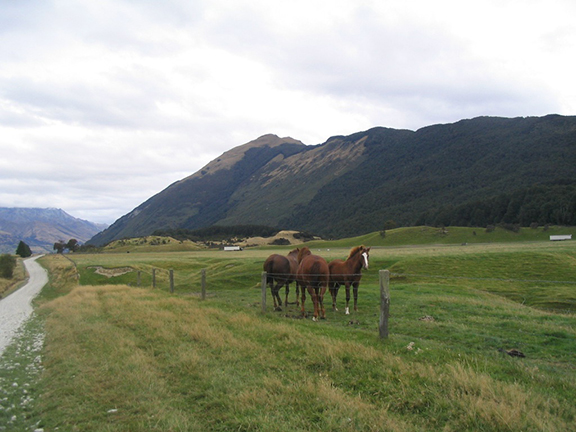
A dream the other night had me rounding a bend onto a city waterfront. I was alone, walking, backpack on my shoulder, no sense of any particular destination along that waterfront.
Isn’t that the way it is in dreams—the tease they bring to the waking mind, figure out this one, no neatly spelled out narrative to make sense of, their messages delivered like postcards from the unconscious mind?
Here’s what I see in this dream: a road, a journey, water. That I’m by myself speaks to a place deep in me, possibly archetypal and mythic, that some journeys are meant to be taken alone. There is no destination I’m aware of in the dream, only a sense that I’m here, in a state of relative peace, and I’ve come this far.
There is rarely ever a smooth path on a journey. We hit psychic snags, bumpy roads. We make choices, we let choices be made for us. We hit crossroads, we think about the roads not taken with or without regret. Not for nothing is Robert Frost’s “The Road Not Taken” such a popular poem for the suggestion that personal and spiritual satisfaction comes from taking the road less traveled. In fact, a close reading of the poem shows the narrator deliberating, never really choosing which way to go, except to imagine from some future point in time what it would mean to take the metaphoric road less traveled.
I take the dreams I remember to heart. Modern neuroscience may tell us how we dream but the jury is still out on what dreams reveal. Are they rich in symbolism à la the theories of Freud and Jung? Or are they simply a side effect of random neural impulses? Either way, my dream has me thinking a lot about how we make peace with the mix of choice and circumstance that determines where our personal journeys lead us. It takes a lot of internal work to keep from being weighted by the past or restrained by future anxieties. If you’re lucky, something eases along the way, says to you this moment is all there is: sink into it, let it inform your choices. Let go of regrets. Don’t be deluded by expectation. This is the road you’ve taken.
If you’re a fiction writer, you get to fully imagine alternatives as Lionel Shriver does so cleverly and convincingly in The Post-Birthday World.
If you’re a poet, you write poems with beautiful, resonant, moving lines that say as much about making art as they do about introspection and self-discovery. “A wild patience has taken me this far,” writes Adrienne Rich in poem entitled “Integrity,” in a collection that takes its title from that line.
And if you’re someone who gives credence to her dreams, you remind yourself that their secrets are really no mystery if you pay attention to them. Sometimes they echo with profound experiences, childhood memories, past loves. Other times they’re riddled with uncertainty and insecurity. As my inner life evolves, hopefully with the kind of acceptance and wisdom that come with age, how can I help but see dreams as barometers of change along my very own long and winding road?
My Sentimental Journey Playist

